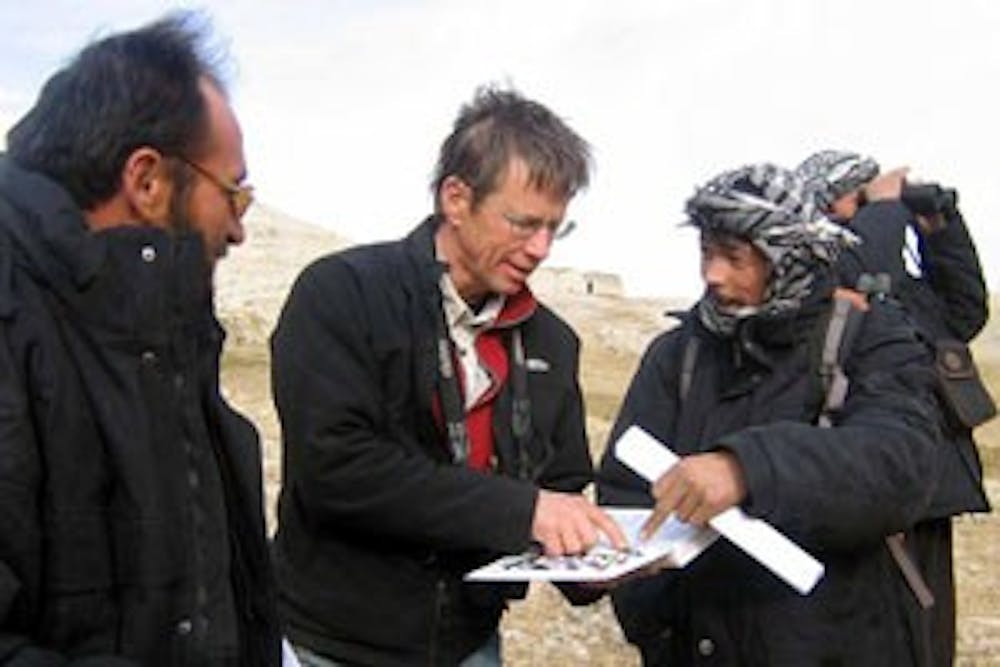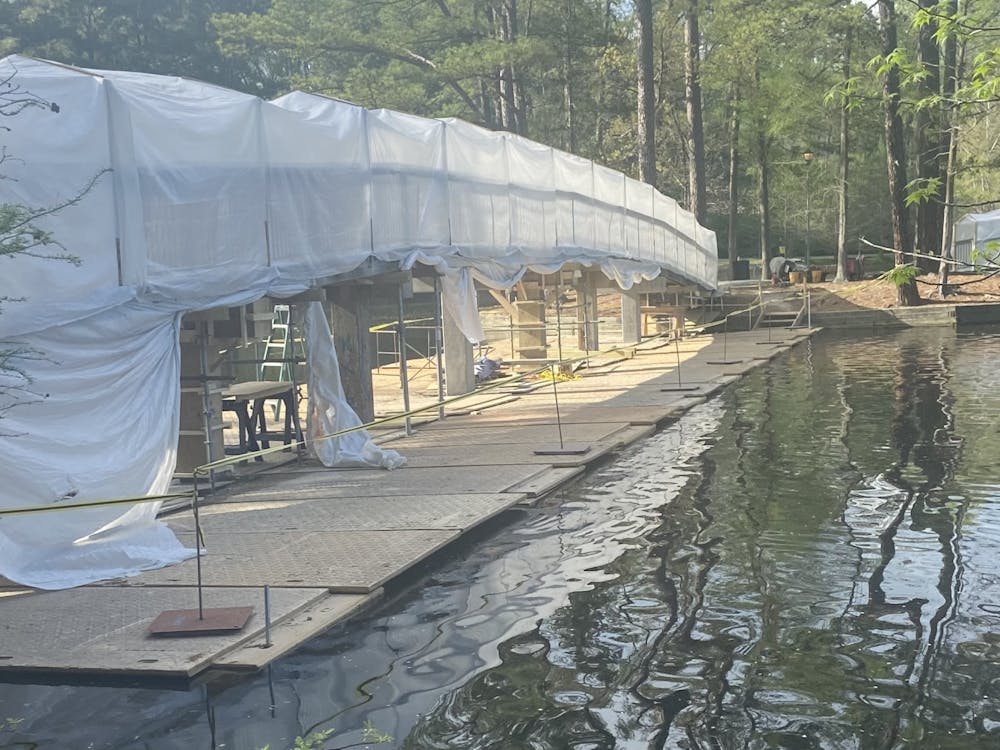A cluster of six pristine blue lakes tucked into the mountains of Afghanistan's remote center has tentatively become the war-torn country's first national park, thanks largely to the work of Peter Smallwood, a University of Richmond biology professor.
Three decades of fighting had stalled previous efforts to protect the area from resource decimation. But at a small ceremony in Kabul on Wednesday, in conjunction with Earth Day celebrations, the head official for the National Environmental Protection Agency signed an executive order establishing the park, pending the expected approval from the country's parliament.
The creation of the park -- named Band-e-Amir for "Lake of the Ruler" -- is a burst of good news in a country that has slowly slipped back into the grips of a rising insurgency and faces an increase in American troop presence to quell the resulting violence.
The project is more than a year in the making for Smallwood, who has been on leave from Richmond since January 2008 to serve as the country director for the Wildlife Conservation Society, a non-governmental organization that aims to preserve biodiversity worldwide.
"It's a beautiful place that's been in the Afghan consciousness for some time," Smallwood said Wednesday in a phone interview from Kabul. "For them, it's a real achievement to establish it as a national park."
This year's unusually harsh Afghan winter challenged Smallwood's team of conservationists, who must fly from their base in Kabul to Bamiyan City, then drive several more hours on rugged and shoddily maintained dirt roads to reach the park, located in Bamiyan Province.
Much of the 230-square-mile park is dry grassland, verging on desert, with steep rock faces from the canyon down to the valley floor, where the six lakes are, Smallwood said.
The cascading lakes -- fed by runoff from surrounding mountains -- are held back by travertine rock dams, formed by the deposition of calcium carbonate from the water. The size of the dams, some of which are more than 30 feet high, are a rare natural phenomenon that Smallwood said could lead to an influx of international tourism given the park now has preliminary protection. The area is already a tourist destination for a few thousand Afghans.
The United States Agency for International Development, a branch of the U.S. government, contributed funding to help establish the national park. Smallwood's WCS team conducted early wildlife surveys, identified the park's boundaries, assisted the government in hiring and training local rangers and helped the Afghan government draft laws to enable the park's creation.
Smallwood's team also worked with the 13 villages -- where about 5,000 people reside -- to construct tourist buildings and form a committee to represent the villagers' interests in the park's management plan. Those efforts to include the locals fulfill a component of Afghan law that requires protected areas to be largely managed by locals.
Enjoy what you're reading?
Signup for our newsletter
The area's designation as a national park also allows its four park rangers broad power in enforcing laws, Smallwood said. WCS officials are hoping to train more.
"The locals are excited about the economic opportunities for tourism, and they're also worried," Smallwood said. "They're worried that if they get a stream of international tourism, somebody will force them all to leave -- whether that's the central government or some commander. And given the history they have, that's an understandable fear."
Ever-present in daily operations is the threat of violence and terrorism. Smallwood acknowledged that many of the threats were concentrated south of Kabul, far from Band-e-Amir. Still, he bears responsibility for his team's safety, and even the park's peace hasn't halted the decline in visits between the summers of 2007 and 2008, something Smallwood attributed to the nation's overall backward momentum with security.
"I don't think it should be a surprise if 2009 is lower," he said. "But I'm confident it will turn around in a few years."
Different areas of the park are afforded varying levels of protection. Restrictions are most stringent near the lakes, where building structures, pitching tents and allowing animal grazing, among other activities, are prohibited. That represents about 3 percent of the land.
The remaining area carries stipulations about limited grazing, a law that Smallwood said WCS officials hoped would help locals better manage their natural resources.
"Much of the landscape could support more livestock than it already does, if the land were given a chance to recover," Smallwood said. "The locals have some understanding of that already."
Back at Richmond, 19 students from a geography class taught by assistant professor David Salisbury contributed research about the viability of certain Afghan species for WCS. A handful of students participated in a few early morning meetings between WCS and government officials.
"It's a war-torn country," Salisbury said. "There's very little means to do any real research on the ground fieldwork because you can't travel in much of the country. Here at Richmond, we have access of incredible library system and academic journals to do that."
Smallwood's work abroad, both in Afghanistan and in Iraq for the U.S. government several years ago, could lead to courses combining conservation, politics and geography.
"Conservation biology often, if not always, has an international perspective and some of the places that need conservation most are in countries with dangerous political landscapes," said Malcolm Hill, chairman of the biology department.
For Smallwood's remaining time abroad, he and his team will continue to help the locals learn how to manage their resources. They're also continuing work on creating a transboundary park in the Wakhan Valley in northern country, which would join China, Tajikistan and Pakistan if approved. He is slated to return to Richmond in July.
"The images of Band-e-Amir are distinctive, just in the sheer beauty of the place," Smallwood said. "It's easy for Afghans to recognize that as their place -- 'That's my national park.' -- and I think it'll really help provide a rallying point for a sense of national identity."
Contact staff writer Dan Petty at dan.petty@richmond.edu
Support independent student media
You can make a tax-deductible donation by clicking the button below, which takes you to our secure PayPal account. The page is set up to receive contributions in whatever amount you designate. We look forward to using the money we raise to further our mission of providing honest and accurate information to students, faculty, staff, alumni and others in the general public.
Donate Now



